|
Davis has been a doula for six years and says she’s helped more than 20 individuals and families give birth. A self-described “black, Jewish, dyke,” her training started in Brooklyn, New York where she realized she didn’t want to be a midwife. She decided instead to become a doula.
Doulas provide a wide range of pregnancy and childbirth support, which can include childbirth education, prenatal and postpartum care. “I like to say a doula is from the waist up, and a midwife is from the belly button down,” Davis explains. Though doulas are not medical professionals, some parents and moms are turning to midwives and doulas instead of traditional hospitals for more support during the birth process. While Davis warns they’re not the magic wands to a perfect birth, she believes there’s a doula for everyone. “If you want an Asian doula, there are Asian doulas,” Davis says. “If you want a free doula, there are tons of free doulas. If you want a trans person, there’s trans doulas. There’s literally a doula for everyone.” Part of Davis’ appeal to clients is her intersectional identity as a black, gay, Jewish woman. She says she has shared the same experiences that queer parents face and recognizes the fears some women of color have about maternal health, which can make her clients feel safer. Read the rest on NPR. Big thanks to Esmy Jimenez for this feature
0 Comments
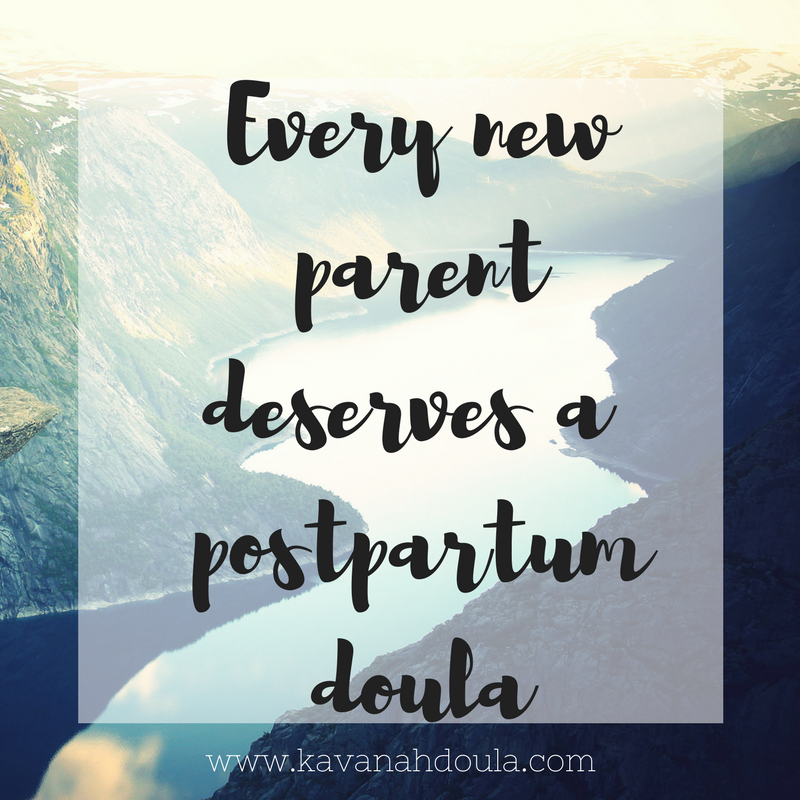 I remember the first time I needed to call a postpartum doula for a birth doula family I was working with. The new parent was a single mother and overwhelmed by a 2-3 day old baby who seemed to just want to cry. The mother's breasts were hot and engorged, making it difficult for her hungry screaming baby to latch on. Tears streamed down her face and she looked at me helplessly. I gave her a forced smile, picked up her wailing baby and lead her into her bathroom to draw a warm bath. As she soaked I soothed her baby and quickly text a postpartum doula and lactation consultant I worked with. She arrived just as I was helping the mother dry off. I watched as the postpartum doula expertly helped the mother express some breast milk to spoon feed the baby and got to work helping the new mother. When I came for my second prenatal a few days later my client was a new person. She was confident, happy and nursing, though still difficultly. She'd already attended her first Le Leche League meeting and planned to go back. Her transformation was astounding and it was in that moment that I realized that my job as a birth doula was only one part of the journey. A Postpartum Doula is a necessary ally for all pregnant people and new parents in the 4th Trimester, the time after baby is born. I never wanted to have that "holy shit, now what?!" moment again and decided to train at the Simkin Center at Bastyr University as a Postpartum Doula to help bridge the gap between pregnancy and parenthood. Now that my training is complete and I'm working towards certification I want to empower all new parents to seek the care of a postpartum doula. Your postpartum doula is not a nanny or babysitter, your postpartum doula is an extra set of helping hands for the entire family. The role of a postpartum doula is to help new parents navigate the transition from being pregnant to becoming parents to a new baby. A postpartum doula helps to reassure new parents in their decisions around feeding and sleep. A postpartum doula helps new parents understand their new baby better by teaching them how to speak to a tiny human that speaks a different language than the parent. A postpartum doula helps keep new parents organized and provides support with light household tasks like meal making and grocery shopping. A postpartum doula has your best interests in mind; making sure new parents are staying hydrated, eating, sleeping and is watchful for signs of postpartum mood and anxiety disorders. A postpartum doula's role is to help new parents get their sea legs and to eventually leave when new parents are feeling more confident in their new role as parents. I will be starting to take postpartum doula clients in September and would love to talk to you about ways in which I can support your new family. It always feels great to get reviewed on my Birth Doula services! In the last month I've received two new reviews! You can check them out over on DoulaMatch or read them below!
I have openings for June and July Births so be sure to send me an email to schedule your consultation! "Erika is one of those most competent, kind, emphatic and capable doulas I have ever met. She transformed every fear and anxiety we had into a reassuring, comforting thought to take with us into the birth. She visited with us in our home a couple times before the actual birth and always brought books, visuals and great stories. At the actual birth, she was unflappable and focused the entire time. I have no idea how but she never seemed to get tired or stressed! She was a great support for BOTH of us too - for my wife who was birthing our child and to myself as the birth partner. She was right there with us reminding us to drink water, eat a snack or take a break to breath. And she happily took photos at our request after our daughter was born. There is no one quite like Erika - her humor, her warmth, her energy are unlike any other doula out there. My wife and I both would recommend her without any reservations." "Erika made me feel so supported and confident about my labor and birth. The birth plan she helped my partner and I craft, as well as discussions about what happens if things don't go according to plan, helped us make decisions easily during labor. I would definitely hire her again and would recommend her services to anyone looking for an amazing birthing experience with a caring and competent doula." The following snippet comes from a January 12th article about doulas from the Seattle Times. While I find some aspects of the piece problematic, particularly the assumption that doulas are women and that only women give birth, it does a great job at shedding a bit of light on the racial and ethnic disparities faced by people of color and the babies of those people.
"A week into my son’s life, he wouldn’t stop crying. I can still see his scarlet face and hear the alarm in his voice. Exhausted and new to motherhood, I was flummoxed and near panic myself. Then my doula rang the bell. A no-nonsense woman, she swooped Malcolm up, whispered in his ear and massaged his little body. Identifying that he was hysterically hungry, she fed him a few fingers of formula — calming him down long enough to nurse. She also asked me how I was doing and listened when I admitted: “Not great.” She was a lifeline in the chaos, and I still think of her with deep gratitude. A person* is a woman who is trained to assist women during childbirth as well as in the pre- and postnatal period. It’s a tradition with roots around the world but a practice that has been resurrected in the U.S. as research increasingly shows doulas reduce C-section births and encourage successful breast-feeding." Read the rest of the article here. I'll admit it, "Doula" is sort of a buzz word in birth now. Almost as common as "When's your due date?" is "Do you have a doula?" For some a doula seems like a bit of extravagance, an expensive accessory for the rich. And for others a doula is something that only hippie-dippy folks have.
Both can be true, and more. Ill give you an example. I have a friend, let's call her Chana. She's a Type-A, badass lawyer. She's no nonsense and gives the best side eye of anyone on the planet. Period. When I told her that I wanted to move to the country to raise chickens I never thought I'd see her eyes again, she rolled them so hard. So when she got pregnant and asked for my help finding a doula I was shocked. And when I got an email from her of her requests I understood she was one of those people who wanted the support, but none of the other "hippie" things. She had no problem with pain meds, she wasn't going to try to do something natural if she couldn't handle it and wanted a doula who understood that. She just had her second baby with her second no-nonsense doula. While having a doula may seem like a new thing, it's actually quite old, as old as it's Greek name, perhaps older. When people gave birth they would be traditionally and historically be joined by family. Grandmothers, sisters, aunts, cousins and close friends would join the birthing person, in many cases the birthing woman to give her the support she needed to bring her baby earthside based only on experience and instincts. As birth moved away from the home and into the hospital this tradition was lost, when we need it the most. And with hospital schedules that work on rotations and shifts giving birth can be a sea of unfamiliar faces. A doula is sometimes the only constant. I've heard snide comments that doulas don't really stay for the entire birth, especially for long labors and I can say, in my personal experience as a doula, that I've never left a mother's side. The one exception was when my sister passed away during a birth. I've spent multiple evenings in hospitals, and my longest was just over 50 hours. Check out this informational page over on Evidence Based Birth for more ways that Doulas can help in a birth. 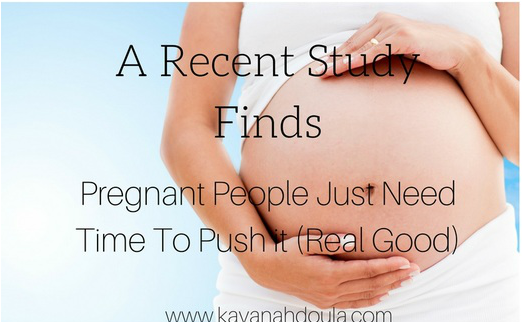 Back in March the American Journal of Obstetrics and Gynecology released q study that confirmed what a lot of midwives and doulas (and yes many OBGYNs) have been saying for a while. Pregnant people need more time to push. In fact, the study proved that if women and pregnant people were given as little as one extra hour to push their rates of unplanned C-Section went down by roughly half. HALF!
According to the Huffington Post article about the study, while this information has he potential to radically change how people give birth in the U.S, it may not actually amount to concrete change. Author Catherine Pearson writes, while the study is small, it's "unlikely to fundamentally change medical norms any time soon, researchers say it offers a much-needed critique of potentially outdated standards." Just how outdated are the standards you may ask, well the allotted time a woman is "allowed" to push was adopted in the late 1800s. “[The time recommendation] came from expert opinion from the 1800s,” said Dr. Alexis Gimovsky, a fellow in maternal fetal medicine at Thomas Jefferson University in Pennsylvania, and an author on the study. “Since then, there’s really only been retrospective data used to validate that guideline.” In the 1950s, researchers looked over earlier data and found that women who delivered their babies within two hours had lower rates of infection and serious postpartum bleeding, for example. In 1955, another team concluded that most women without anesthesia give birth within two hours." So what does this all mean? In my opinion it goes back to the idea of B.R.A.I.N, being armed with knowledge, and being confident that your body knows how to give birth. As a review B.R.A.I.N is an acronym I suggest pregnant folks and couples start to using during prenatal appointments with your caregiver.Using it early on in pregnancy and frequently helps you get accustomed to the process of coming to your care provider with questions and being ready with responses that are best for you and your baby. Frequently using B.R.A.I.N also is great so that when something is suggested during labor, you're ready to ask: B: Benefits - What are the benefits of doing this? R: Risk -What are the risks of doing this? A: Alternatives -What alternatives do we have? I: Intuition/Instinct - What's your gut say? N: Nothing - What happens if we do nothing? I will close by saying that there are many reasons that birth visions fall off track and interventions and potential c-sections are how some babies are born. I like to say that there is no "right" or "wrong" way to give birth. And this evidence-based information about not rushing into pushing and giving you, the person giving birth, time to ease into pushing and to let pushing happen can result in the birth you vision.  Finding the right doula is all about finding a good match. Your doula should fit seamlessly into your life and the life of your family. A lot of times you'll hear doulas say that we "hold space", which I think is pretty accurate. We're not there to be your cheerleader (although we will encourage you completely). We're not there to be your coach (although we'll make sure you have all of the tools you need to have the birth you envision). And we're not there to replace your partner. Instead, we help you create, make and keep space. And finding someone who is able to do that in a way that is natural and feels comfortable is all about the Match. Meeting a doula is sort of like going on a blind date. You have possibly scoped out their profile on a site like Doula Match. You were attracted to their skill set. You sent them an inquiry and they emailed back. The emails and the phone conversations felt wonderful and natural, and you got actual nervous butterflies in your stomach waiting for them to arrive to the initial consultation. And in the moment you met the chemistry just clicked. I've had this feeling for all of my births and I can say honestly that it is one of the best feelings. And. Even after meeting with a couple or woman who is giving birth and even if everything feels amazing and we gel well as a team, I always encourage the couple or single person to go home and think about it. Hiring a doula is not only a big financial decision, it's a big personal decision. Inviting another person into a birthing space is a big deal. That person, your doula, will bare witness to your birth and the expansion of your family. They will see you laugh and cry and roar. They will see you at your most vulnerable and your most powerful. I guess what I'm trying to say is that they will truly see you. Into the deepest parts of your soul. Now think back to that initial meeting. Is that the person you want to share your soul space with? For me, thankfully, the answer has always been yes. In fact, there has only been one time when it wasn't a good match between me and a mother. And it was me who decided that we didn't quite fit. She went on to have a lovely birth and found the right doula for her. And I went on to continue to do births as well and find clients who were a good match for me. Like a good date, a good partner, a good melon - you just know. 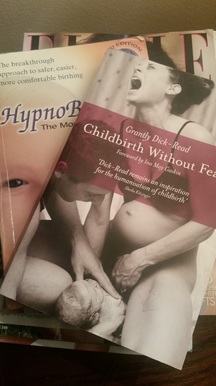 Happy 2016 Readers! I feel like my mother saying this, but it seems like 2015 FLEW by! I can't believe it's already 2016-The year that I aspire to take my doula business off the ground! So many goals, so many dreams, so many opportunities to improve who I am as a woman, wife and doula and I'm SO excited to start! I'm thrilled that I have my first 2016 birth booked for March. These clients are interested in having a HypnoBirth, which means I've been doing research and reading all I can shove onto my mobile's already stuffed memory on the subject. I'm excited to be working with this couple and am excited that the birth they want to have is a natural one. It should make for amazing learning for all three of us. I'm also excited about Postpartum Doula training in February. I've been wanting to do more PP training since I had my first mother with serious nursing issues almost 3 years ago now! It was a humbling experience to realize that while I'd been trained to a degree, my training didn't prepare me for her issues. My other goals for 2016 are to train and certify as a Child Birth Educator and to FINALLY become a yoga instructor. I think that these three additions to my birth work will make me a premier, well-rounded birth educator in the South Puget Sound. If you're due to give birth in April, May or June of 2016 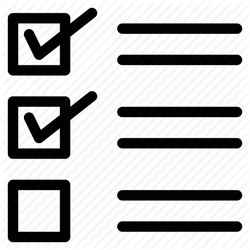 I pride myself on being a black, queer Jewish doula, but does that mean I'm the right doula for someone who, say, identifies as a white, heterosexual Christian? Yes, maybe.
According to an article about Black Midwives in the LA area, "Nationwide, black women are at the greatest risk of pregnancy-related death, have the highest rates of C-sectionsand, compared with whites, black infants are four times as likely to die of complications at birth and twice as likely to die before their first birthday." This disparity in maternal care along racial lines is something that can't be ignored. When a woman of color in the hospital birthing system is possibly surrounded by doctors and nurses who don't look like her, having a black doula to help her advocate for herself can be the difference between a natural birth and an emergency c-section. I want to be clear that this isn't to say that a white doula couldn't provide a woman of color care that is just as comprehensive and caring, it's just different. A black doula shares a similar life experience as her black client, even if they come from two separate worlds. So what about religion? Is it important that my doula matches my personal religion? Again, I can't say, though I've personally doulaed for couples who shared my religious background and those who did not. For some, the religious/spiritual aspect of birth is important. It can mark a new life cycle event that requires special prayers or affirmations be recited. Having a doula who is familiar with those rituals can be helpful. For others, birth is just a part of life that doesn't hold any specific religious significants, but has a spiritual element that a doula can help facilitate. Mother blessings, placenta burying, and similar are all rituals that a doula can help plan. Lastly, what about sexual orientation. Would it be weird to have a lesbian doula at my birth if I'm not a lesbian myself? Again, I can't answer this question for anyone. However, I will say that all of my clients to date have been straight couples or single women and it hasn't been an issue. Like race and religion, having a doula who understands differing pronouns, gender presentation, language, and processes can be helpful for couples and singles in a hospital setting, where awareness and sensitivity may be limited. So what does this all mean? Should I only accept clients who are like me? No, not at all. I love that my client base has been an incredibly diverse mix of single women, couples, friends and strangers. I love that I've been able to whisper tehillim (Psalms) while a woman labors and mimic "Thank you, Jesus" when an exhausted mother holds her baby for the first time. I always encourage clients that I meet for consultation to interview at least two (or more) doulas to find the one that "fits". And if the one that fits happens to be similar to you, great. If the doula does not, well, that's great too.  One of the things I often hear is that doulas cost a lot of money. And I get it. When you see a one-time, often up-front price ranging from hundreds to thousands of dollars, it can be intimidating. Add to that the fluctuation of prices from doula to doula, and the process can become overwhelming. So why are we so expensive? Truthfully, we're not. I say that as a person who would gasp (okay, maybe faint) whilst forking over a thousand dollars (or more) for a doula when my time comes. So where does your doula fee go? Experience and Training Most parents who are looking to hire a doula start with where she was trained as well as how much experience she has. Doulas who have been through multiple trainings and have attended a great deal of births tend to charge more for their experience. But, that's not to say that a doula who has only attended a few births doesn't also charge "market price" for her services. While most of the money we earn for births goes towards logistics (more on that later), a chunk of it (at least for me) goes towards advanced training. This ultimately makes for better doulas. The average cost of doula training is about $600, though I have seen it higher for week-long retreat-style trainings. Postpartum training can also range between $600-900. If you want to become a Certified Lactation Consultant, trainings can be as much as $900, and if you'd like to take it further to become an Internationally Board Certified Lactation Consultant, testing costs money as well. Becoming certified in Placenta Encapsulation, Child Birth Education, and Essential Oils and Herbs are trainings that most doulas want to add to their business. We earn these certifications and attend trainings based on our income. Logistics Most doulas go on 24/7 call at least two weeks, but sometimes as early as a month before the time of a client's Estimated Due Date. This means they are essentially "on the clock" 24 hours a day. If I divided my current doula fee* of $850 by two weeks, I would average about $2.52 an hour without counting the amount of time doulas spend with their clients during their birth. Like most doulas, when a client calls me for their birth, I stay by their side until 2 hours after the baby is born and the parents are settled. This also means that we are not taking new clients. We are usually not going on initial consultations or meetings because we could be called to a birth at any moment. We are committed to our clients. Gas, Food, Etc. Doulas pay for their own gas or fare for public transportation to all consultations and prenatal visits. We also make postnatal visits (up to 2, or 3 in some cases) without charging a "postpartum doula fee." While we don't get lunch breaks, we do pay for our food, water, and supplies that we bring to each birth. This can range from books we loan to clients to birthing balls, rebozos, etc. Personal Sacrifice When a doula goes on call, she/he does so with the knowledge that at any time we could be called for a birth. This means we miss family time, vacations and trips, or nice dinners with our significant others. And when the time comes for baby to be born, we leave our full time jobs (if we work outside of doula-ing), family, and children for an undefined amount of time. Is it Worth it? I can't say that for anyone (typical doula answer). The evidence shows that having a doula-attended birth results in less intervention, fewer cases of unplanned c-section, better management of labor pains, shorter labors, and healthier breastfeeding relationships. Like most doulas, I'm not in it for the money. I do what I do because I'm passionate about it. I love helping people become parents. There is still nothing more awe-inspiring than watching a baby be born. I get a rush from the sheer power and determination of women in labor and nothing beats the smell of amniotic fluid clinging to your clothes. The oxytocin that baby and new parent emit is intoxicating and contagious. I always tell parents that I interview with that they should pick a doula not by how much she costs, or her experience, but by how you feel when you are in her presence. And to my mind, that presence is priceless. |
Details
AuthorHi there! I'm Erika Davis and I'm a doula working in the Seattle and South Puget Sound area. Archives
December 2018
Categories
All
|
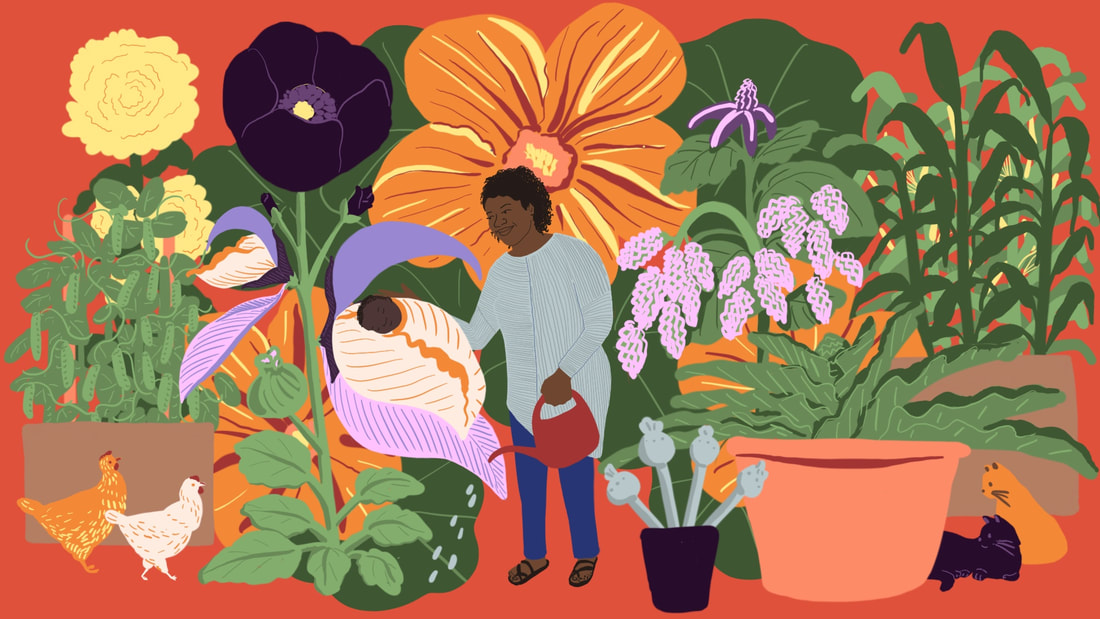
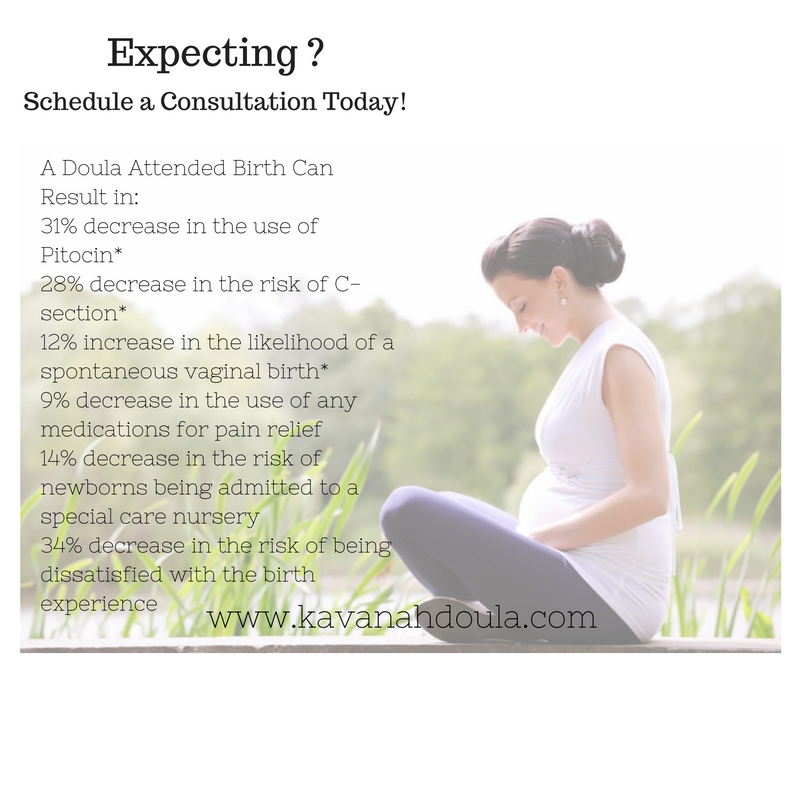
 RSS Feed
RSS Feed